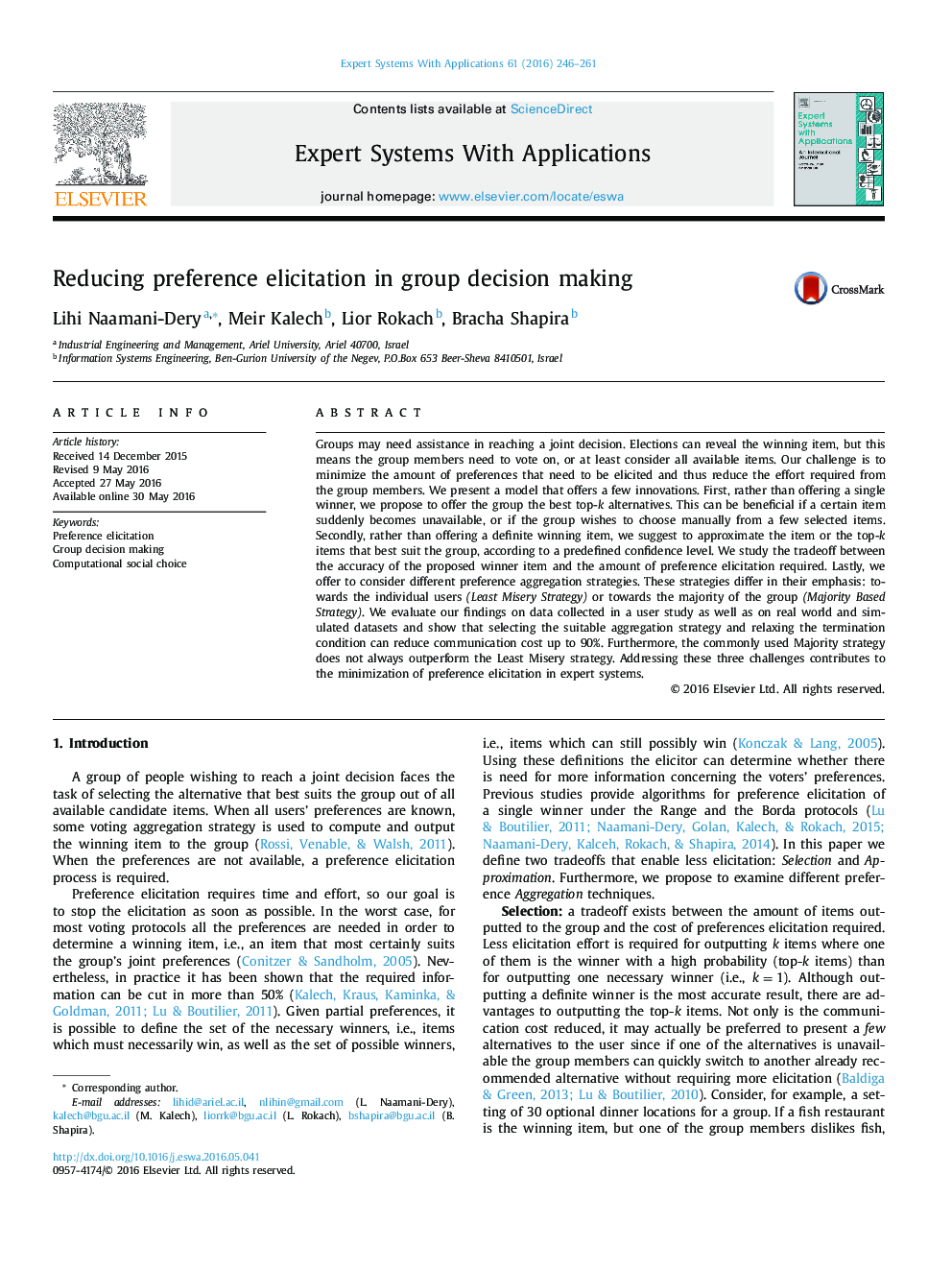| Article ID | Journal | Published Year | Pages | File Type |
|---|---|---|---|---|
| 6855649 | Expert Systems with Applications | 2016 | 16 Pages |
Abstract
Groups may need assistance in reaching a joint decision. Elections can reveal the winning item, but this means the group members need to vote on, or at least consider all available items. Our challenge is to minimize the amount of preferences that need to be elicited and thus reduce the effort required from the group members. We present a model that offers a few innovations. First, rather than offering a single winner, we propose to offer the group the best top-k alternatives. This can be beneficial if a certain item suddenly becomes unavailable, or if the group wishes to choose manually from a few selected items. Secondly, rather than offering a definite winning item, we suggest to approximate the item or the top-k items that best suit the group, according to a predefined confidence level. We study the tradeoff between the accuracy of the proposed winner item and the amount of preference elicitation required. Lastly, we offer to consider different preference aggregation strategies. These strategies differ in their emphasis: towards the individual users (Least Misery Strategy) or towards the majority of the group (Majority Based Strategy). We evaluate our findings on data collected in a user study as well as on real world and simulated datasets and show that selecting the suitable aggregation strategy and relaxing the termination condition can reduce communication cost up to 90%. Furthermore, the commonly used Majority strategy does not always outperform the Least Misery strategy. Addressing these three challenges contributes to the minimization of preference elicitation in expert systems.
Related Topics
Physical Sciences and Engineering
Computer Science
Artificial Intelligence
Authors
Lihi Naamani-Dery, Meir Kalech, Lior Rokach, Bracha Shapira,
